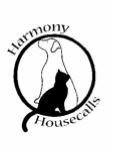Dangers of Grain Free Diets?!
04/09/2019
Grain free diets for animals have been popular for many years now due to various concerns about food allergies and the human concerns with eating gluten-free. Unfortunately, a trend is being seen of some dogs (and a few cats) developing a heart condition called DCM (Dilated Cardiomyopathy) that may be connected to diet. This condition has previously only been seen in specific breeds with a genetic predisposition (Boxers, Great Danes, Doberman pincers,…) Now it is being seen in other breeds of dogs and a connecting factor is the feeding of "Boutique, Exotic ingredient, and Grain-Free" diets (labeled BEG diets by researchers). So far, concerns for large amounts of chickpeas, peas, lentils and other legumes, and potatoes (sweet and regular) as substitutes for protein and carbohydrate needs has been singled out, though there are still a lot of unknowns including genetic differences in metabolism. A similar condition occurred in cats many years ago and was linked to taurine insufficiency in diets. Now all cat foods are supplemented with taurine. This appears to be related, but a simple taurine addition has not been sufficient in the case of these dogs.
Switching to a more research-based brand has reversed the condition in several cases. The official recommendation is to stick with the "Big 5" dog food brands that have more extensive research and feeding trials: Eukanuba, Iams, Hill's Science Diet, Purina (ProPlan & higher end versions), and Royal Canin. Studies are continuing in order to learn more about what may be affecting these dogs. Sadly, signs of DCM heart disease come on suddenly and some have died. Though still very rare, over 300 animals (6 cats, the rest dogs) in the last 5 years have been diagnosed as having DCM with what seems to be a dietary connection.
For all we know about nutrition, there is still so much unknown. Dietary rotation (feeding a few different brands and ingredients) is an option to avoid long term effects of nutritional deficiencies with any one diet as well as ingredient concerns such as the recent Science Diet recalls for excessive vitamin D levels. Home cooked diets are another option, but this can also have concerns of nutritional deficiencies. Varying ingredients and sticking with recipes formulated by boarded veterinary nutritionists are important steps. Please avoid random online sites for homemade diets! I can help to guide these choices. If you would like to schedule an examination and to discuss your animal's dietary needs, please contact me!
For more nutrition discussion see topics in Pet Care: Healthy Diet and Supplements
Here is a link to a good explanation from NC State Veterinary Hospital
Switching to a more research-based brand has reversed the condition in several cases. The official recommendation is to stick with the "Big 5" dog food brands that have more extensive research and feeding trials: Eukanuba, Iams, Hill's Science Diet, Purina (ProPlan & higher end versions), and Royal Canin. Studies are continuing in order to learn more about what may be affecting these dogs. Sadly, signs of DCM heart disease come on suddenly and some have died. Though still very rare, over 300 animals (6 cats, the rest dogs) in the last 5 years have been diagnosed as having DCM with what seems to be a dietary connection.
For all we know about nutrition, there is still so much unknown. Dietary rotation (feeding a few different brands and ingredients) is an option to avoid long term effects of nutritional deficiencies with any one diet as well as ingredient concerns such as the recent Science Diet recalls for excessive vitamin D levels. Home cooked diets are another option, but this can also have concerns of nutritional deficiencies. Varying ingredients and sticking with recipes formulated by boarded veterinary nutritionists are important steps. Please avoid random online sites for homemade diets! I can help to guide these choices. If you would like to schedule an examination and to discuss your animal's dietary needs, please contact me!
For more nutrition discussion see topics in Pet Care: Healthy Diet and Supplements
Here is a link to a good explanation from NC State Veterinary Hospital
